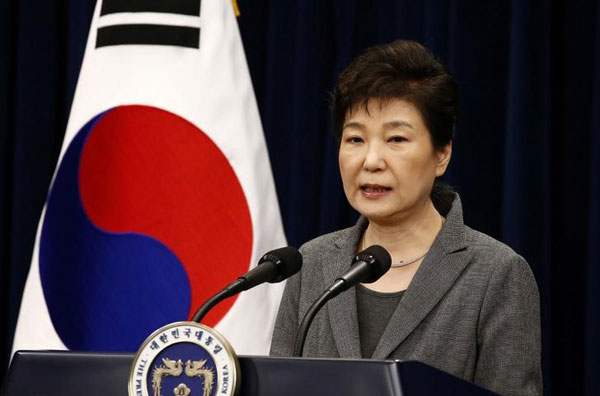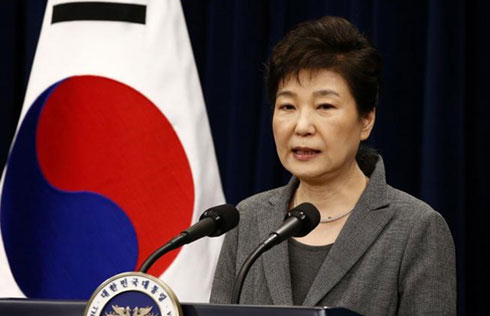A bill to impeach South Korean President Park Geun-hye passed
 |
|
South Korean President Park Geun-Hye speaks during an address to the nation, at the presidential Blue House in Seoul, South Korea, November 29, 2016. [Photo/Agencies] |
SEOUL - South Korean parliament overwhelmingly passed a historic bill Friday to impeach scandal-scarred President Park Geun-hye as it gained the two-thirds majority vote.
The final tally was 234 votes cast in favor of impeachment, with 56 against and 2 abstentions. Seven votes were invalid. One legislator did not take part in the voting.
President Park will be stripped of all powers immediately after receiving the copied result on paper. It is expected to take 3-4 hours for the document to reach the impeached president.
The first South Korean female leader became the country's second president impeached by the National Assembly.
Prime Minister Hwang Kyo-ahn is to become acting president, temporarily assuming presidential power while the constitutional court weighs the case for as long as 180 days.
The impeachment was overwhelmingly passed as there are 172 opposition and independent lawmakers in the 300-seat assembly.
Before the vote, about 210 legislators were forecast to vote yes considering the number of ruling Saenuri Party lawmakers who are not loyal to President Park.
The number of votes in favor indicates over 20 pro-Park faction members cast secret ballots in favor of the president's impeachment. Among Saenuri lawmakers, 62 members voted for it, with 56 against.
The vote started right after a quarter-hour speech by a lawmaker to explain the impeachment proposal, which was put forward last Saturday by the opposition bloc.
It took just over an hour to make the proposal speech, cast ballots and count votes. Legislators voted one by one on printed ballot paper inside closed booths.
The parliament picked the traditional way of voting to prevent a possible manipulation in electronic vote, which the unicameral assembly usually takes in passing bills.
























